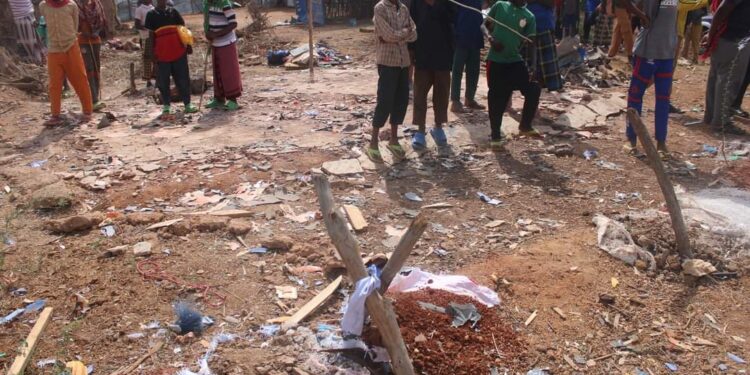(17-06-23) MOGADISHU — Two elderly women were killed Friday night during an airstrike carried out by the Kenyan Defence Forces (KDF) in the Al-Shabaab-controlled towns of Sakow and Salagle, Middle Juba region of Somalia. The airstrike destroyed Hormuud Telecom’s office in the city, causing significant service disruption and property destruction.
The strikes, targeting the key telecom facility, represent a severe escalation in the ongoing conflict between the KDF and Al-Shabaab militants, with the latter reportedly conducting a series of attacks in the North Eastern region of Kenya over the past two weeks.
Civilian lives and critical infrastructures are increasingly caught in the crossfire, with the KDF showing a hardline approach. The airstrike marked a significant departure from conventional targeting, effectively turning a lifeline service provider for thousands of locals into a military target.
According to Minister of State for the Ministry of Environment & Climate Change, Adam Aw Hirsi, this hardline approach is not only “senseless” and “reckless” but also “counterproductive”. He stressed that Hormuud Telecom represents a bank, a hospital, a pharmacy, and a food market for the local community, who keep and use their money through Hormuud’s EVC+ services.
“Targeting Hormuud with air raids is not only inhumane but also has the potential to promote the very crimes they ostensibly counter,” Hirsi warned. He further highlighted that such actions can foster frustration and extreme poverty, which in turn are proven to breed more terrorists.
Hormuud Telecom, in a statement, confirmed that despite the disruption and property damage, no staff member was physically harmed. However, they acknowledged the significant distress caused to local communities and assured that their teams are working round-the-clock to resume full services.
These airstrikes, causing civilian casualties and crippling local lifeline services, underscore the dire situation faced by residents of Sakow. As the repercussions of these hardline tactics continue to unfold, the call for peace and protection of civilian lives and infrastructure becomes more urgent than ever.




























